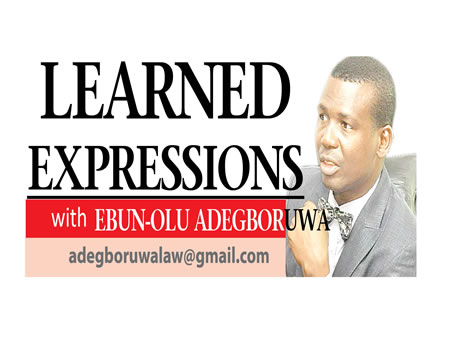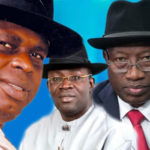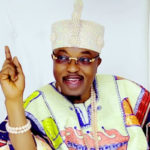In the previous two editions of this piece, we have considered the factors that will engender a true democratic experience in our beloved country Nigeria. We also discussed those factors that seem to hinder the growth of democracy. In this concluding part, we shall further x-ray the impediments to democratic attainment, proffer suggestions and recommendations, for the players to deploy as action plan towards achieving true democracy, we trust our leaders to implement them.
Controversy trails operations of armed Miyetti Allah vigilante group in Ondo, govt orders probe
THE GODFATHER FACTOR/IMPOSITION OF CANDIDATES
Democracy as we have all come to recognise it, is a rule of choice, whereby the people are allowed the exercise of their free will, not only in their choice of leaders, but also and more importantly, in the system and style of governance. So, when a political party or any other organisation involved in the democratic agenda, makes the practice of forcing leaders on the people, then democracy cannot thrive, simply because imposition of any kind at all, is antithetical to the freedom of choice.
All across the major political parties, there is the complaint and protest against the imposition of candidates, against even the constitution of these parties. In some cases, the electorate have paid the godfathers back in their own coins, with the loss of elections, and in other cases, the courts have helped to water down their ego by reversing their acts of impunity. My point however is that we don’t even need to get to the point where the people have to protest before the players and actors will agree to respect the freedom of choice. It should simply be part of us.
EXECUTIVE/LEGISLATIVE RECKLESSNESS:
The executive at all levels in Nigeria seems to have the notion that, that ‘executive might is right’. They operate the machinery of government most times according to their whims and caprices, without due regard for the laws of the land and this has weakened the advancement of democracy in many respects. A few examples include but are not limited to:
- Selective obedience to the judgments of court. Whereas section 6 (b) of the Constitution empowers the courts to determine disputes between governments and citizens, sad instances abound where the executive arm of government has failed or neglected to obey orders granted by the courts, reminding us of the hey days of the military juntas.
- Attempts at emasculating the legislature and the judiciary: The executive arm has carried on the activities of governance in Nigeria, with so much loath for the principles of checks and balance. Thus, any institution that stands on its way must be crushed. The law has been thrown to the wind in such instances, with frivolous prosecution of members of the legislature and intimidation of the judiciary in some other cases.
iii. Abuse of the fundamental rights of Nigerians: The End SARS campaign by a majority of the Nigerian masses on social media, is a sad reminder of the many cases, where security agencies operate as though either there is no law in the land or they are above the laws of the land. This is against the spirit of democracy by all standards.
- Interference in the Judiciary by the Executive: By the combined provisions of sections 4, 5 and 6 of the Constitution, the principle of checks and balances was entrenched, whereby one arm of government should not be seen as lording it over another arm of the same government. In practice however, the Executive arm of government has been guilty of this more in breach, on a daily basis. A good example is the case of the former Chief Judge of Kebbi State and current Chief Judge of Kogi State, who both had a running battle with their State Governors, for daring to resist executive takeover of the judiciary. Which was why the Nigerian Bar Association, at its last Executive Council meeting in June, 2019 rose up in defence of judicial autonomy and independence.
WEAK INSTITUTIONS:
Former President Barrack Obama in his address to the Ghanaian Parliament as part of his maiden visit to that country stated thus “No person wants to live in a society where the rule of law gives way to the rule of brutality and bribery. That is not democracy, that is tyranny, and now is the time for it to end.” “Africa doesn’t need strongmen, it needs strong institutions,” The Nigerian society has not taken advantage of the instrumentality of law to build enough capacity in institutions to deliver on their mandates and this has created a lot of inconsistency in governance.
A DOCILE CITIZENRY
The laws themselves do not have mouths, hands and legs to walk the talk. Their enforcement for the common good requires human agents. Now a docile citizenry is one that watches while state actors or politicians continue to flout the laws of the land and do nothing. Now ask yourself: are you a docile citizen? What have you done or are doing to speak out against the breach of the law by elected officials?
It is on this note that Pat Merloe in the article published in “Democracy Works” urges us thus:
“There is no democracy without the engagement of citizens. Engagement is thus both a right and a responsibility of citizens in establishing, developing and sustaining democracy. Citizen engagement is not an abstraction; it takes tangible forms and serves particular purposes to improve people’s’ lives. Citizen engagement pursues economic, social, cultural and political development, including the provision of opportunity, resources, services, and security.”
SUGGESTIONS FOR REFORM
This discourse is not the book of lamentation and as such, I shall attempt to make some recommendations towards the advancement of democracy in Nigeria. These include:
- Strengthening the Electoral Process: There is the urgent need to tinker with the electoral laws and the Constitution, to firmly entrench the deployment of technology in the electoral process. Besides, it is a joke that in this 21st century, all that is needed to be President of Nigeria is a school certificate or its equivalent. Law makers in the 9th assembly must as a matter of urgency initiate amendments in this regard to a minimum of a University Degree with a minimum diploma in law or political science. This is to equip the leader with the requisite intellect to manage a modern society such as ours.
- The Nigerian judiciary must remain fearless and bold in holding governments accountable when it flouts the laws of the land. The court must assist the Nigerian people through innovative and inspiring judgments, in defence and advancement of the judiciary.
iii. The Nigerian state must continue to build the capacities of democratic institutions, through amendments of obsolete legislations, proper funding and appointment of competent officials to head such institutions.
- A vibrant bar, civil society and populace willing to hold government accountable for acts which undermines and jeopardises democracy. Lawyers must remain the obstacle to every dictatorship, rise up to protect the judiciary when under unprovoked attack and when the lawyers rise up, the judges must find courage to decide the law according to their conscience, no matter whose ox is gored, as happened in Kogi State recently, the maxim being, Fiat Justitia Ruat Caelum, (let justice be done, though the heavens fall).
CONCLUSION
In concluding this discourse, it is important to reiterate that the “rule by law’ as distinct from the ‘rule of law’, is a catalyst for the erosion of democracy. In the former, law is an instrument in the hands of the government and it is above the law; whereas in the later, everyone is bound by the laws of the land. Consequently, it is safe to say, there is no democracy without law. In fact, law is the midwife of democracy. Permit me to end with the admonitions of CHARLES E CLARK in his article titled ‘The function of law in a democratic society’ published in the University of Chicago Law Review thus:
“If the people are not in command of their own government, but are actually subordinate to some yet more remote sovereign who upholds and justifies unsanitary conditions, poor housing, long hours of labour, and general defiance of social welfare legislation as a freedom required by some vague constitutional command or higher law of nature, then we are nearer either anarchy or the rule of the autocratic few than we are democracy.”
Birthday Tributes
WOLE SOYINKA
The other week, Nobel Laureate, Professor Wole Soyinka, turned 85. He is no doubt an icon of a special breed, reputed to know the English Language more than the English people. Combining his literary prowess with his struggle for good governance, democracy and human rights, has no doubt placed him in a special and uncommon position as a nationalist, poet, activist and a friend of the masses. Happy birthday sir.
NDUKA OBAIGBENA
He has not been christened the Duke for no reason, having turned around the Nigerian media space, in such a little time, challenging the status quo, to be firmly established as a vibrant brand of no mean reputation. At 60, Mr Obaigbena has no doubt trodden in the midst of the lion and survived. There is still so much going for him, in the many years ahead. Keep doing what do best sir.
WATCH TOP VIDEOS FROM NIGERIAN TRIBUNE TV
- Let’s Talk About SELF-AWARENESS
- Is Your Confidence Mistaken for Pride? Let’s talk about it
- Is Etiquette About Perfection…Or Just Not Being Rude?
- Top Psychologist Reveal 3 Signs You’re Struggling With Imposter Syndrome
- Do You Pick Up Work-Related Calls at Midnight or Never? Let’s Talk About Boundaries







